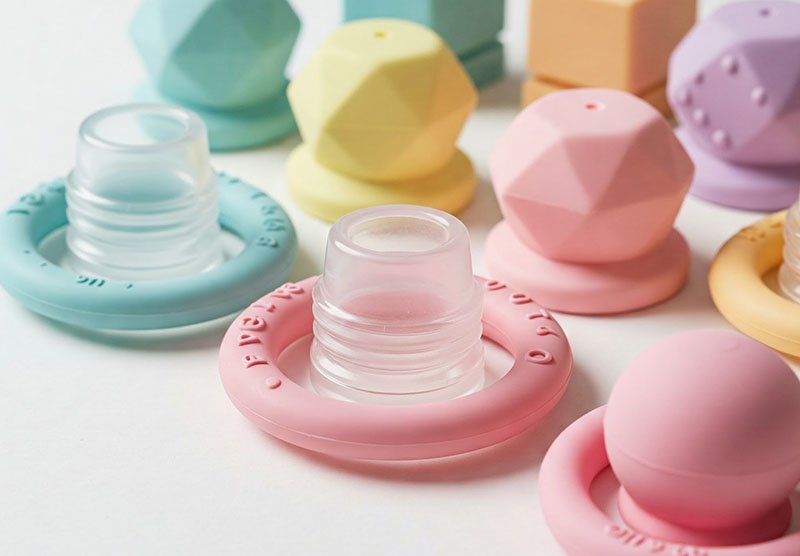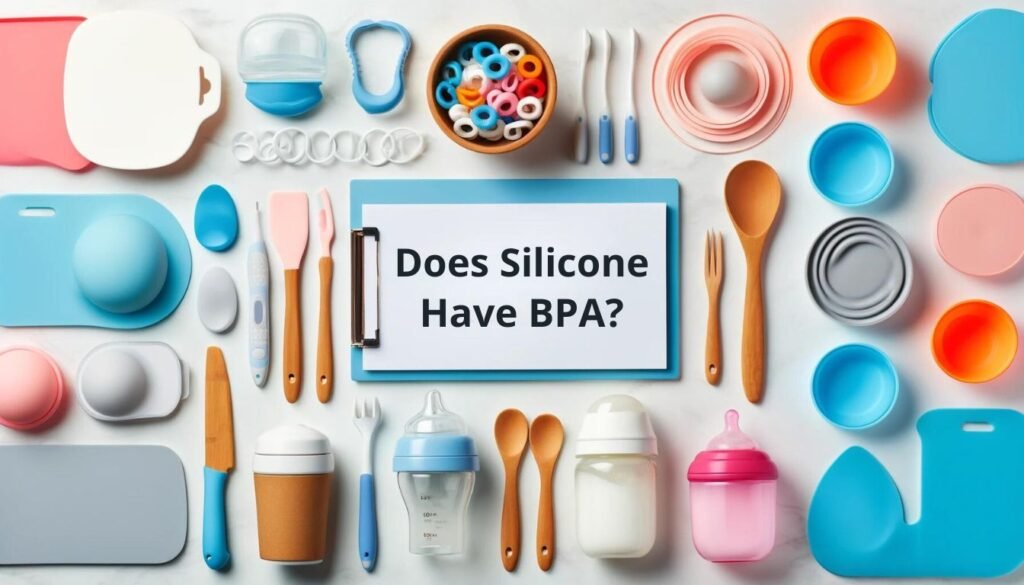Plastic waste is choking our planet—and it’s even creeping into what we feed our babies with.
Silicone baby feeding products are a safer, greener alternative to plastic, offering durability, non-toxicity, and a lower environmental footprint.
Parents want the best for their kids. But now, they also want what’s best for the planet. Switching to eco-friendly silicone feeding products helps do both. Let’s break down how silicone is leading a quiet revolution in sustainable parenting.
Why is silicone a better alternative to plastic in baby products?
Plastic feeding products can release microplastics and harmful chemicals over time.
Silicone feeding products are made from sand-derived materials, making them safer, longer-lasting, and more eco-conscious than plastic.
Plastic baby products are everywhere because they’re cheap and easy to mold. But they come with serious downsides. They often contain BPA, phthalates, and microplastics. These substances can leach into food and harm a baby’s health. Plus, once discarded, plastic sticks around for centuries.
Silicone, on the other hand, is made from silica—found in sand. It doesn’t break down into microplastics. It doesn’t release toxic chemicals. It’s heat-resistant, dishwasher-safe, and won’t degrade easily. These properties make it ideal for products like baby bowls, spoons, and bottles. Unlike plastic, which often gets replaced quickly due to cracks or discoloration, silicone products can last for years with minimal wear. This cuts down waste in landfills and reduces the need for frequent replacements.
| Material | Durability | Safety for Babies | Environmental Impact |
|---|---|---|---|
| Plastic | Low | Often questionable | High (non-degradable) |
| Silicone | High | Non-toxic | Low (reusable, recyclable) |
By choosing silicone, I can offer products that perform better for parents and the planet.
How does silicone contribute to sustainability efforts?
Plastic waste adds millions of tons to landfills each year. Many plastics are hard to recycle and often end up in oceans.
Silicone is reusable, recyclable in specialized facilities, and doesn’t release harmful pollutants, supporting a cleaner planet.
The biggest win with silicone is that it’s built to last. Unlike single-use plastics, silicone items can handle thousands of wash cycles. That means fewer products tossed in the trash. Also, silicone can be recycled at end-of-life through certain programs—unlike many plastics that just sit in landfills.

We design our silicone baby products to be multi-functional and timeless. A silicone bib, for example, can be used from six months to toddlerhood. One bowl may replace five cheap plastic ones. When parents buy less and use longer, they’re naturally reducing their environmental footprint.
And there’s more—our production process is optimized to minimize waste and emissions. We also offer customization so that brands like Little Steps Baby Care can create long-lasting, branded eco-products that resonate with eco-conscious parents.
What are the health benefits of using silicone for baby feeding?
Parents are worried about hidden toxins in feeding gear. Plastics are often under scrutiny for this reason.
Silicone is hypoallergenic, BPA-free, and resistant to bacteria, making it a healthier option for babies.

Health is every parent’s number one concern. When I first got involved in silicone manufacturing, one of the most exciting things was how safe the material is. Silicone doesn’t contain BPA, PVC, lead, or phthalates. These are common in many plastic products and linked to developmental issues in children.
Silicone is also non-porous. That means it doesn’t harbor bacteria the way some plastic or rubber items do. For feeding tools like spoons and bowls, this is a huge plus. Even with constant washing, silicone stays clean and smooth. It doesn’t stain or retain smells.
Another key benefit: it’s microwave-safe and freezer-friendly. Parents can warm up purees or store breast milk without switching containers. That’s not only more convenient—it’s also healthier because fewer transfers mean fewer contamination risks.
From pacifiers to plates, silicone gives peace of mind. It protects what matters most—baby health.
Why are silicone products more cost-effective in the long run?
Eco-friendly often sounds expensive. That scares some buyers away.
Silicone baby feeding products last longer, resist damage, and don’t need frequent replacing, making them more cost-effective over time.

Let’s talk money. While silicone products can have a higher upfront price, they pay off in the long run. One high-quality silicone plate can outlast five plastic ones. It won’t crack when dropped or warp after a few microwave uses. Parents appreciate products that don’t need replacing every few months.
This durability makes silicone products a smart investment. And for brands, it means fewer returns and better customer satisfaction. At RuiYang, I’ve worked with buyers who used to replace entire product lines every season. Once they switched to silicone, those replacement rates dropped sharply.
Also, think about branding. Eco-conscious consumers are loyal. Offering sustainable, reusable silicone products tells your customers you care. That’s not just better for the planet—it’s better for your brand story.
How can manufacturers source sustainable silicone baby products?
Sustainability starts at the source. Not all silicone is equal.
Partnering with trusted suppliers like RuiYang ensures high-quality, eco-friendly silicone products that meet safety and sustainability standards.

If you’re sourcing baby products, the quality of your supplier matters. At RuiYang, we control the entire process—from raw material selection to final packaging. We use food-grade, LFGB-certified silicone. That means every item is tested to meet European safety standards, which are among the strictest in the world.
We also offer design support, so our clients can customize products without compromising on safety or sustainability. Whether it’s a new ergonomic spoon design or a color palette to match your brand, we handle it all under one roof.
Logistics matter too. We maintain a stable supply chain and ensure timely delivery. For John at Little Steps Baby Care, that reliability helps meet seasonal launches and keeps inventory consistent.
If you’re serious about going green and keeping babies safe, working with a responsible silicone manufacturer makes all the difference.
Conclusion
Eco-friendly silicone baby products aren’t just a trend—they’re a smart, sustainable solution for modern parenting.